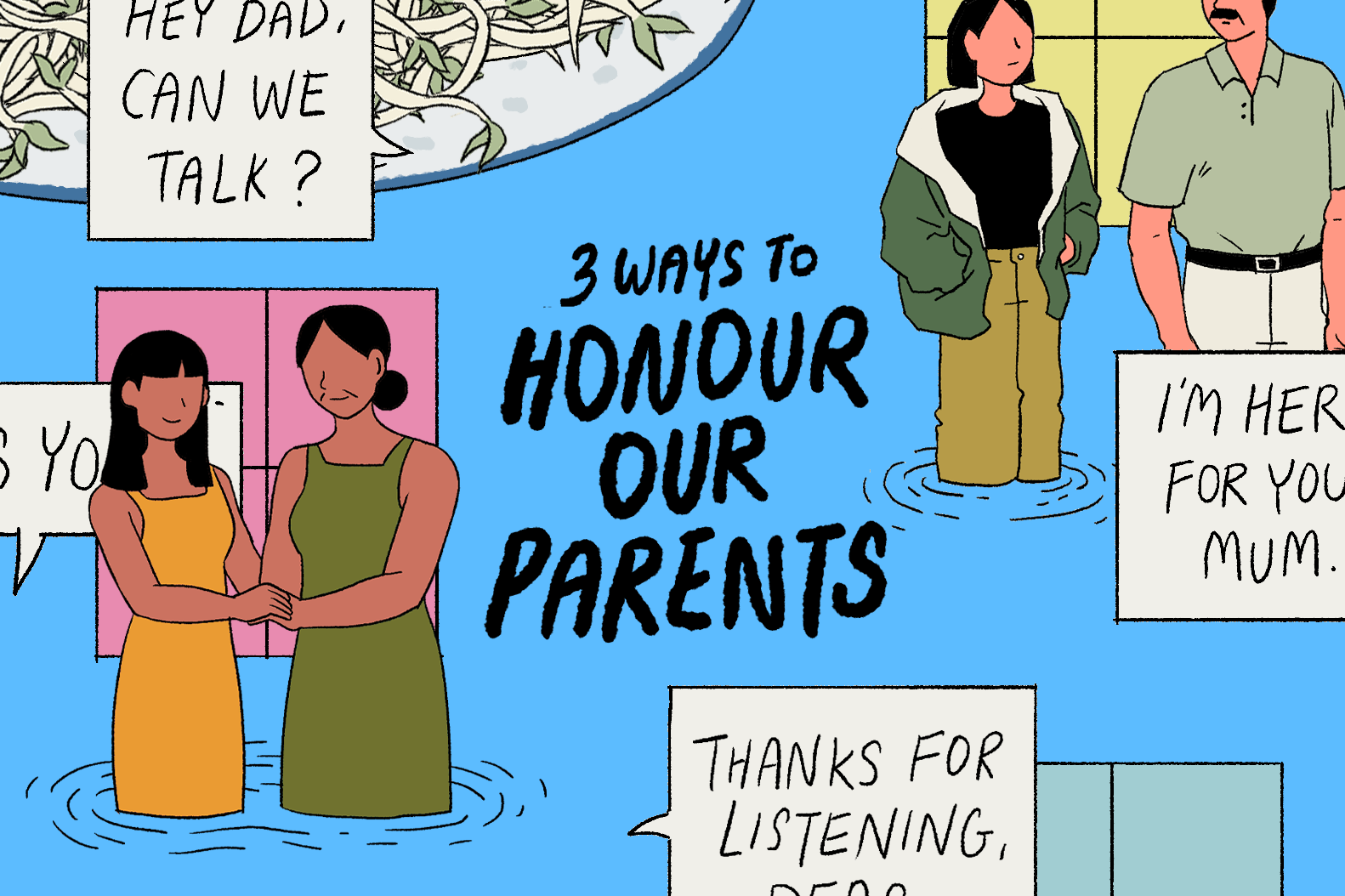My father pastored a family church for many years before he was made the chairman of the Singapore Centre for Global Missions (SCGM) to lead the local conversation on mission work. His ministry was mostly based in Singapore, except for the occasional mission trips he made throughout the year.
Growing up in a “holy” environment with a father like that made us the picture-perfect Christian family. Saints for parents. Angels for children. No problems, always peaceful.
But it was resentment instead of pride that grew with the constant distance between my father and I – the bitterness at the thousands of miles that separated us often expressed in tears of longing to be daddy’s girl once again. Dad was no longer a constant figure in my life as he wasn’t always there.
And when he finally was, it was as if we spoke different languages neither of us could understand. Was this man really my father?
I started pushing him away and blocking him out. I saw how lonely my mother was whenever he left and decided I couldn’t quite trust him anymore.
The many “welcome back” cards I used to make for him as a child gradually decreased as his absence soon became a part of my life.
WHOSE FATHER IS THIS?
My mother became the head of the household. She was the “emergency parent to contact” since it was hard to tell if my father would be in town.
My relationship with him continued to sour into my teenage years as we struggled to relate to one another – and also as I simply stopped trying. I was angry with him for not attending my dance performances and hurt with a sense of negligence. My adolescent insecurity was further heightened in a home with a sporadically missing dad.
And then there were the financial grievances that followed a missionary’s life. I was angry with God for choosing my father to go down this road of missions, his life affecting the bulk of mine. Estranged relationship aside, there was also a part of me that experienced a sense of inadequacy.
How was I a princess of the Most High King and yet living like a pauper?
I helplessly watched the downgrading of my father’s mode of transport from a 7-seater car to a bicycle that was given to him.
Knowing that his source of income came from funds raised for his company was not exactly comforting either.
It was impossible not to compare myself with friends who dressed in designer brands from top to toe, no matter how much I tried to convince myself to “live simply, so others can simply live.” Whenever my parents told me money was not a concern, I would chuckle because deep inside I believed they were lying through their teeth.
Money was always a concern for me. It caused me a painful amount of internal conflict to settle for second best while knowing it was because we couldn’t afford the best.
How was I a princess of the Most High King and yet living like a pauper? It didn’t make sense to me. How was I to live in a world telling us to chase our dreams when I was bogged down every day by worries over my parents’ financial struggles?
Yes, I admired my father and his boldness in taking that step of faith, to forsake his riches and truly live out Matthew 19:21. In following the Lord of his life, Jesus Christ, he possessed little and gave his life to those less fortunate than him.
But it broke my heart to see the sad look on his face whenever he came back from dinners with his fellow Raffles alumni; I couldn’t help but feel sorry for him. He could have been a regular businessman given his education – and a successful one at that – providing for his wife and children with ease. Instead, he chose to answer the pressing call to disciple others as he was discipled in his youth.
And the cost of discipleship is never easy.
I AM MY FATHER’S CHILD
Out of curiosity, I followed my father to his mission fields one day, to the mountains of Chiang Mai and the grasslands of Inner Mongolia. To the places that stole him away from me. And as I came face to face with true poverty and the hearts of the local people through their eyes, I finally understood why he kept coming back.
Though the struggle to find peace over my dad’s work continued, things started to change within me. By chance, I got in touch with a fellow missionary’s child, Spencer. He was the son of my father’s colleague at SCGM. Spencer was brought to Nepal from Singapore at 10 months old. His younger siblings were born and raised there.
As I came face to face with true poverty and the hearts of the local people through their eyes, I finally understood why he kept coming back.
After spending 12 years in their parents’ mission field, they were brought back to Singapore, far away from the place they had called home all their lives.
The sudden geographical and cultural shift made it adversely difficult for them to adjust and adapt despite being natively Singaporean. Thrown into this daunting urban city and its equally overwhelming education system with classmates younger than themselves, Spencer and his siblings quickly found themselves lost in their own homeland.
“We struggled to fit in. We were always readjusting ourselves and it was very tiring,” he confided in me.
Suddenly, I wasn’t so alone anymore.
I saw that being called into full-time mission work requires great sacrifice, a sacrifice that needs to be understood and supported by your loved ones and is not easily communicated.
And as a pastor’s child, I can say with conviction that though the path to answering God’s call may be shaky and slippery at times, He never fails. My family – and Spencer’s – has been blessed and provided for in the most miraculous of ways through the years.
That 7-seater my dad used to drive? A blessing from a friend. God is so real.
We ask that you remember us in your prayers in hope that one day, we as missionary children will grasp the wonders of what God is doing through our parents and us – for the glory of His kingdom.









